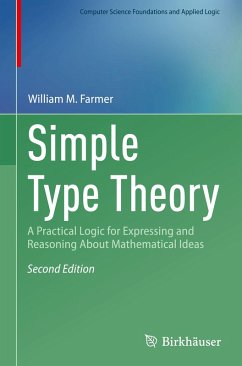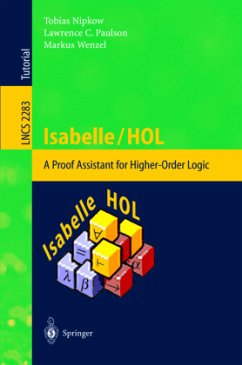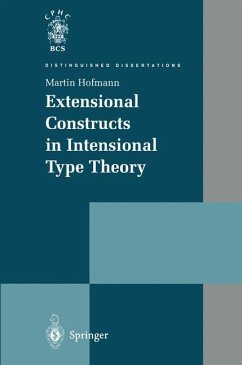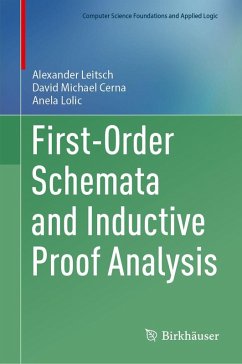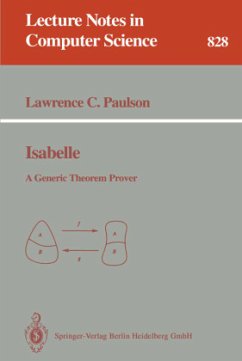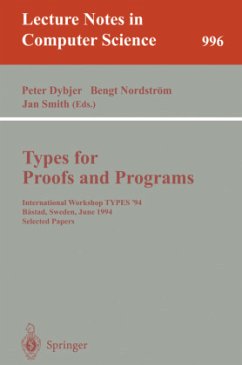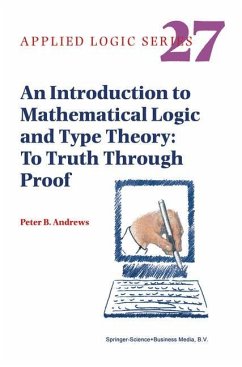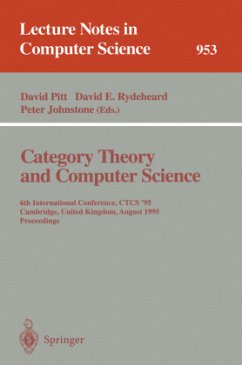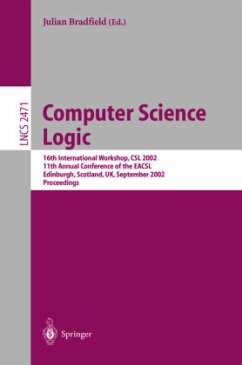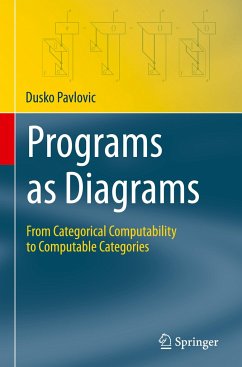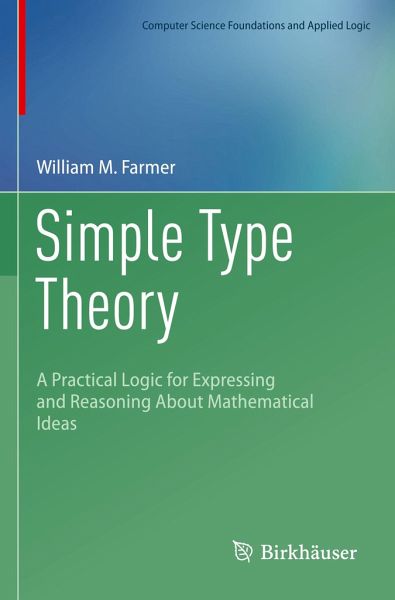
Simple Type Theory
A Practical Logic for Expressing and Reasoning About Mathematical Ideas
Versandkostenfrei!
Versandfertig in 6-10 Tagen
46,99 €
inkl. MwSt.
Weitere Ausgaben:

PAYBACK Punkte
23 °P sammeln!
This unique textbook, in contrast to a standard logic text, provides the reader with a logic that actually can be used in practice to express and reason about mathematical ideas.The book is an introduction to simple type theory, a classical higher-order version of predicate logic that extends first-order logic. It presents a practice-oriented logic called Alonzo that is based on Alonzo Church's formulation of simple type theory known as Church's type theory. Unlike traditional predicate logics, Alonzo admits undefined expressions. The book illustrates, using Alonzo, how simple type theory is s...
This unique textbook, in contrast to a standard logic text, provides the reader with a logic that actually can be used in practice to express and reason about mathematical ideas.
The book is an introduction to simple type theory, a classical higher-order version of predicate logic that extends first-order logic. It presents a practice-oriented logic called Alonzo that is based on Alonzo Church's formulation of simple type theory known as Church's type theory. Unlike traditional predicate logics, Alonzo admits undefined expressions. The book illustrates, using Alonzo, how simple type theory is suited ideally for reasoning about mathematical structures and constructing libraries of mathematical knowledge.
Topics and features:
Offers the first book-length introduction to simple type theory as a predicate logicProvides the reader with a logic that is close to mathematical practicePresents the tools needed to build libraries of mathematical knowledgeEmploys two semantics, one for mathematics and one for logicEmphasizes the model-theoretic view of predicate logicIncludes several important topics, such as definite description and theory morphisms, not usually found in standard logic textbooks
Aimed at students of computing and mathematics at the graduate or upper-undergraduate level, this book is also well-suited for mathematicians, computing professionals, engineers, and scientists who need a practical logic for expressing and reasoning about mathematical ideas.
William M. Farmer is a Professor in the Department of Computing and Software at McMaster University in Hamilton, Ontario, Canada.
The book is an introduction to simple type theory, a classical higher-order version of predicate logic that extends first-order logic. It presents a practice-oriented logic called Alonzo that is based on Alonzo Church's formulation of simple type theory known as Church's type theory. Unlike traditional predicate logics, Alonzo admits undefined expressions. The book illustrates, using Alonzo, how simple type theory is suited ideally for reasoning about mathematical structures and constructing libraries of mathematical knowledge.
Topics and features:
Offers the first book-length introduction to simple type theory as a predicate logicProvides the reader with a logic that is close to mathematical practicePresents the tools needed to build libraries of mathematical knowledgeEmploys two semantics, one for mathematics and one for logicEmphasizes the model-theoretic view of predicate logicIncludes several important topics, such as definite description and theory morphisms, not usually found in standard logic textbooks
Aimed at students of computing and mathematics at the graduate or upper-undergraduate level, this book is also well-suited for mathematicians, computing professionals, engineers, and scientists who need a practical logic for expressing and reasoning about mathematical ideas.
William M. Farmer is a Professor in the Department of Computing and Software at McMaster University in Hamilton, Ontario, Canada.



